Saudi Crown Prince Mohammed bin Salman stressed his commitment to Palestinian statehood at the Arab League summit, amid intensified US efforts to broker a normalization deal between the Gulf kingdom and Israel.
“We will not delay in providing assistance to the Palestinian people in recovering their lands, restoring their legitimate rights, and establishing an independent state on the 1967 borders with East Jerusalem as its capital,” bin Salman said in his address to the Jeddah conference, where considerable attention was focused on Syrian President Bashar Assad’s return to the forum after a 12-year suspension.
“The Palestinian issue was and remains the central issue for Arab countries, and it is at the top of the kingdom’s priorities,” added the de facto Saudi leader, who is known by his initials MBS.
The comments were largely standard for leadership in Riyadh, which has long insisted publicly that it remains committed to the Palestinian cause and will only normalize ties with Israel after a two-state solution has been reached. This has not stopped the Biden administration from working to strike a deal between Jerusalem and Riyadh, with US National Security Adviser Jake Sullivan calling it a “national security interest” earlier this month.
The next week, Sullivan flew to Riyadh, where he met with bin Salman and raised the issue. Sullivan was accompanied by senior White House aides Brett McGurk and Amos Hochstein who subsequently traveled to Jerusalem to brief Prime Minister Benjamin Netanyahu on the status of the endeavor.
Foreign Ministry director-general Ronen Levy also spoke with administration officials about a potential Saudi deal during his trip to Washington earlier this week.
While there is some renewed optimism in Jerusalem, Israel’s Arab neighbors have sent other signals, expressing severe discontent with Netanyahu’s new hardline government over its far-right members and antagonistic policies toward the Palestinians.
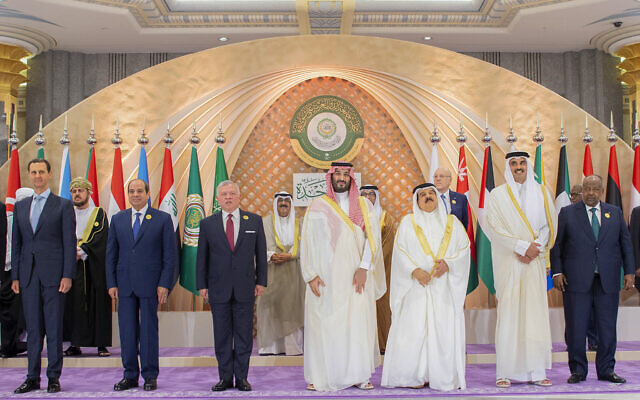
Netanyahu’s planned visit to the UAE put on hold
Netanyahu’s planned visit to the United Arab Emirates has been put on hold and the Negev Forum ministerial summit, which was planned for earlier this spring, has yet to be scheduled by Morocco. The US even recommended that Israel change the name of the Negev Forum so that it is less specifically identified with the Jewish state, amid increased discomfort with Jerusalem in recent months.
A senior Middle East diplomat said last month that the Netanyahu government has made maintaining the Abraham Accords, let alone expanding them to include Saudi Arabia, “very difficult.”
Still, Saudi Arabia has been willing to name its price for normalizing with Israel in talks with Biden officials.
Civilian nuclear program
The senior diplomat said that Riyadh has asked the US to green-light its development of a civilian nuclear program in exchange for the kingdom normalizing relations with Israel.
The civilian nuclear program is among several demands Riyadh has presented in talks with the Biden administration over the past year, the diplomat said, while clarifying that such a deal remains “very far off.”
The senior diplomat said that although Washington is interested in brokering a normalization agreement, Riyadh is not rushing to sign on, recognizing Congressional opposition to Saudi demands for closer US defense cooperation.
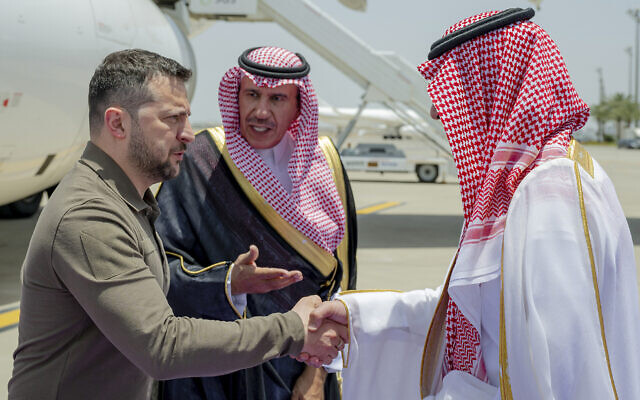
Given the Biden administration’s fears that a Saudi nuclear program could further accelerate a regional nuclear arms race, Riyadh has suggested developing it in full cooperation with the US and agreeing to American monitoring and inspections, the diplomat said, while acknowledging that Washington has not yet been sold on the idea.
Expansion of defense ties with the US
Further complicating the effort, Saudi Arabia is also conditioning a normalization deal with Israel on a significant expansion of defense ties with the US, including a system of guarantees to prevent future administrations from pulling out of weapons deals that have already been signed, the diplomat said.
Abbas urges Arabs to drag Israel before the International Criminal Court
Notably, the Middle East diplomat revealed that Saudi officials have not raised a specific demand related to the Palestinian issue in their talks with the US, as the United Arab Emirates did when it conditioned its decision to normalize ties in 2020 on Netanyahu shelving his plan to annex large parts of the West Bank.
The diplomat speculated that a Palestinian-related demand would likely be raised toward the end of the negotiations.
Just about every Arab leader was present at Friday’s summit in Jeddah, including Palestinian Authority President Mahmoud Abbas. Ukrainian President Volodymyr Zelensky also attended after receiving a surprise invitation.
Abbas used his speech to urge Arab countries to join Ramallah’s effort to drag Israel before the International Criminal Court over its conduct against the Palestinians.
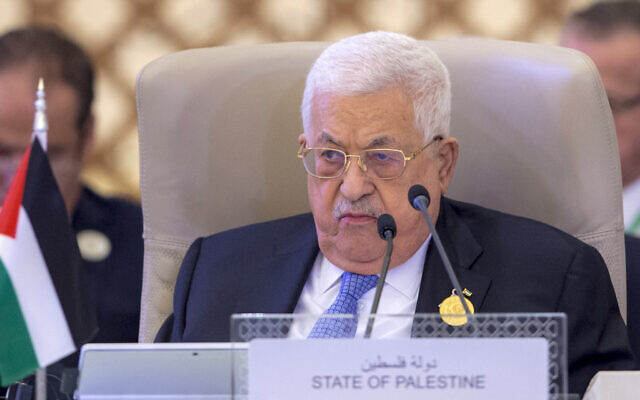
King Abdullah says Palestinians issue remains in focus
Jordan’s King Abdullah struck a similar tone as bin Salman, saying that “the Palestinian issue remains the focus of our attention. We cannot give up on the pursuit of a just and comprehensive peace, which will not be achieved if the Palestinian people are not able to establish an independent state within the pre-1967 borders, with East Jerusalem as its capital.”
He blasted Israeli settlement construction, demolition of Palestinian homes and expulsion of Palestinians from their lands, insisting that the alternative to a two-state solution — which Israel opposes — is an “ongoing state of conflict.”
Egypt calls for end to Israeli occupation
Egyptian President Abdel-Fattah el-Sissi, who often presents as a slightly more moderate foil to Abdullah on Israel, said in his speech that Cairo “followed with sorrow and pain Israel’s irresponsible escalation in the territories and what happened in Gaza.” He appeared to be referencing last week’s five-day conflict in Gaza, which ended after Egypt brokered a ceasefire between Israel and Palestinian Islamic Jihad.
“We call on Israel to end the occupation and to enable the establishment of a Palestinian state on the pre-1967 borders with East Jerusalem as its capital,” Sissi said.
Arab League Secretary-General lambasts Israel
Arab League Secretary-General Aboul Gheit lambasted Israel in his speech as well. “The reckless actions of the Israeli government have led to a shocking escalation in the level of violence and killing in recent months. We salute the steadfastness of the Palestinians. The [Israeli] government’s provocative policies and actions are extreme, and a decisive response by the international community must be taken.”
Syria’s Assad also raised the issue, saying, “the Arab League summit presents a historic opportunity to address regional problems without Western and foreign interference,” namely the “crimes of the Zionist entity against the Palestinian people.”



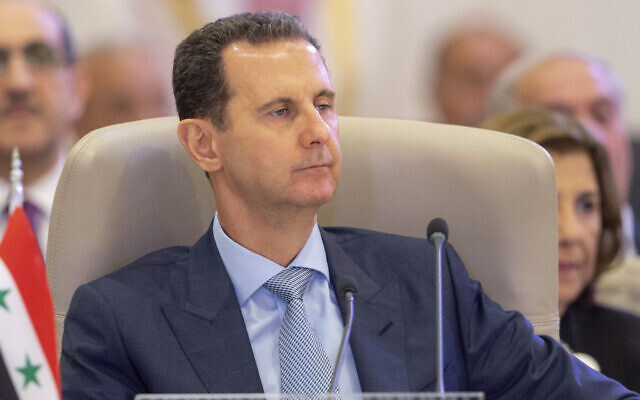
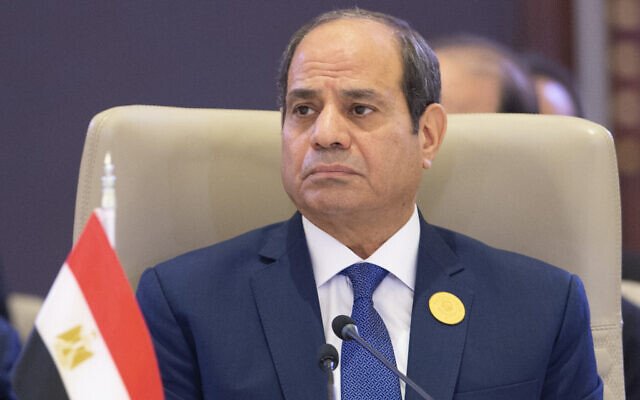



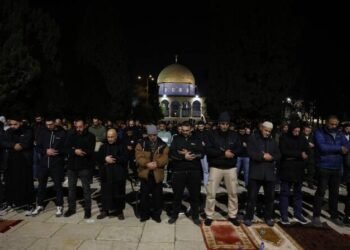
 United Arab Emirates Dirham Exchange Rate
United Arab Emirates Dirham Exchange Rate

